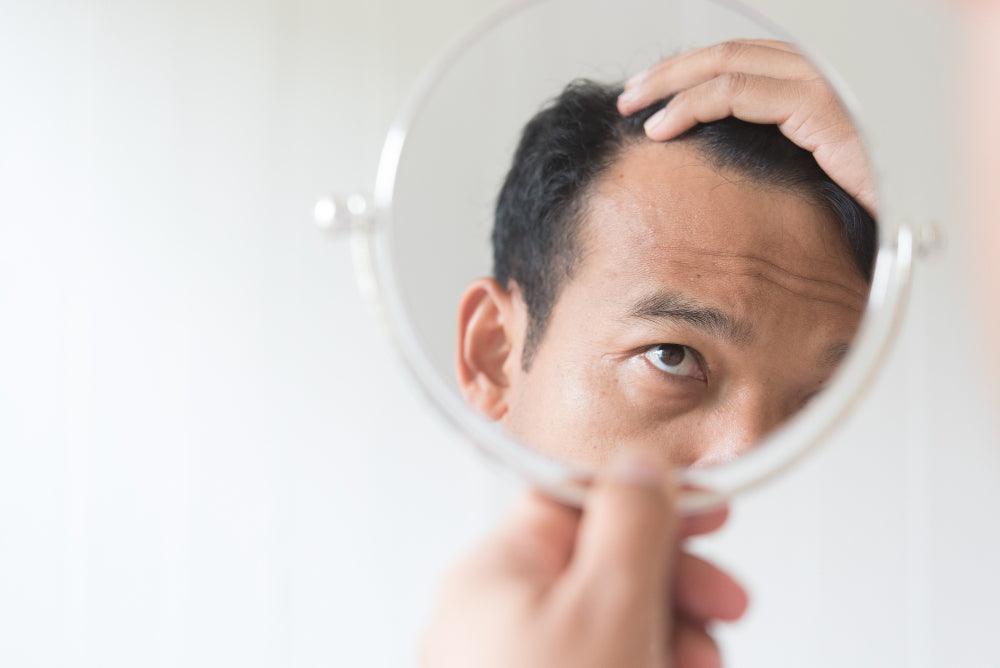The most common causes of hair loss


Everything you should know about thinning hair.

Hair loss can be very difficult, particularly if experienced at a young age. It is among the most common issues faced by dermatologists. If you have hair loss, don't worry, you are not alone. You're just one among the millions of people who have this issue. According to an estimate, more than one-third of UK population is facing some type of hair loss.
The news for you is that it is treatable in most cases. Only you should know what the cause of hair loss is. Let's look at the causes of hair loss.
The medical term for hair loss is alopecia. Finding a few hair threads in your comb is not hair loss. You can lose up to 50-100 hairs daily without any decrease in hair density. If you are losing more than this, you are experiencing alopecia. With hair loss, you can note the following symptoms;
But why alopecia occurs? This is a hot topic of ongoing research, and every research is revealing many more new causes. However, the following causes of hair loss are well known;
If you have a bald head, the first thing a new friend will ask is whether your father was bald or not. If your parents have hair fall, you are also likely to lose hair. It is a very common type of hair loss in both genders and is known as androgenic alopecia (also known as male and female pattern hair loss).

It is a serious type of hair loss and can start at any age from youth to adulthood, and you will find balding temples and crowns. The hair present on the back of the head will not be affected. In female pattern baldness, the pattern will be different, and an overall decrease in hair density will be noticed. It will be noticeable when you divide your hair.
You inherit genes from your parents (both from the father and mother), which increase your sensitivity to the androgens (male hormones) that influence hair follicles and cause baldness. This hereditary hair loss is experienced by almost half of British men and women past 50 and 65, respectively.
A diet deficient in certain nutrients can also cause hair thinning and hair loss. It is a slower and temporary hair loss and will take months to years to complete the process. A diet deficient in vitamin D, zinc, iron, proteins, and essential fatty acids can cause alopecia.
However, it can be reversed by dietary supplements. You should consult a nutritionist to know which nutrient you are deficient in and which supplementation is required.
Advancing age can also cause hair thinning regardless of your diet, inheritance, and health status. About 85% of people past 65 have some degree of hair loss. Why do you lose more hair in old age?

The cells in our body (including cells of hair threads and hair follicles) have a limited potential to multiply. In older years, more cells are dying, and fewer are regenerated. Therefore, baldness in old age is a part of overall degenerative processes occurring in the body.
The hair follicles also have oil glands (the sebaceous glands) that produce an oily secretion. In older years, these oil glands produce less oil. So, your hairs lose their natural moisture, become brittle, and break easily. The androgenic alopecia also worsens with age.
The conditions like polycystic ovarian syndrome (PCOS) and hyperplasia of adrenal glands can result in increased levels of androgens. If you have hair fall issues alongside acne, abnormal hair growth on the body and face, and irregularities of periods, you should consult your physician for hormone tests. The hormone levels will also be disturbed in;
Luckily, this hair loss can be reversed after removing the cause.
Sometimes, it can happen that you have normal hair, but all of a sudden, you begin to find scores of broken threads on your shirt, pillow, floor, or comb. This sudden hair loss is called telogen effluvium. In this condition, more of your hair follicles start entering the resting phase of the hair cycle.
It is in response to a stressful life event. The hair fall can be so rapid that you become fearful of losing all hair within weeks. But, this won't happen. A stressful event will not cause hair to fall within days. The hair fall will start after 2-3 months of a stressful triggering event and peak 4-5 months later. Things, however, return to normal in 6-9 months as your body adjusts to the stress.
The stresses like the death of a loved one, painful accidents, loss of job, and chronic diseases can start this. But, here is a problem. The original stress might have gone, but the hair loss becomes a stress in itself and the process goes on. However, if you can handle pressure, the hair fall will disappear with or without any hair loss treatment.
Cancer is a very rapid and uncontrolled growth of cells. The treatment options, e.g., chemotherapy and radiotherapy, target these rapidly dividing cells and destroy them. But, here is a problem. The hair cells are also rapidly dividing cells, and the radiation and drugs cannot differentiate the cancer cells from the normal body cells.

So, the normal hair cells will also be destroyed, and the patient will become bald within weeks. Further hair loss doesn't stop until all scalp is clear of hair. In chemotherapy, hair loss will be on all of the body while it will be limited to the treated area in radiotherapy. This hair loss is also temporary, and hair growth returns as treatments are stopped.
Some medicines cause hair fall as a side effect. Not everyone taking these drugs will experience hair fall. Some common medications causing hair falls are;
Inform your physician if you notice hair, as it could be the indication to change the medicine.
Inflammation of the skin can permanently destroy the hair follicles leading to scaring alopecia. You will notice redness, burning, itching, and pain on the scalp. Urgent treatment with anti-inflammatory drugs should be done.
Some styling practices, e.g., heat treatment, chemical treatment, and tight hair styling, can also devastate the hair follicles leading to hair fall. This condition is known as traction alopecia and is experienced by models and showbiz celebrities.
Your immune system protects you from external bacteria or viruses. Sometimes, due to some disease, this system can go out of control and begin taking the body's cells as foreign agents and attack them. If such an attack happens on the scalp, a patchy type of alopecia develops in which bald patches are surrounded by normal hairs. This condition is known as alopecia areata.

It is also reversible, and hair will come again. However, no cure is available for autoimmune conditions, and these conditions can reoccur.
Various bacterial and fungal infections of the scalp can also lead to hair loss. Redness and scaling will be visible on the scalp.
Fungal spores are always present in the air, and if conditions are conducive, fungal growth can occur at the scalp too. It is very contagious, will not go quickly, and is the most common cause of hair loss in children. Visit your physician, who will diagnose the infection and prescribe anti-fungal or antibacterial treatment accordingly. Severe disease can lead to scarring on the scalp and permanent hair loss.
We have more information about the causes and treatment options for hair loss. Click here to visit our relevant information pages. We have a variety of products that you can use after consulting our health experts.
Hair loss can be due to a variety of reasons. These reasons include genetics, nutritional deficiencies, stresses, ageing, infections, etc. Regardless of the cause, hair growth slows with advancing age too.

Irrespective of the reasons for hair fall, it is painful, particularly for young people. Instead of worrying, you should identify the cause of hair loss and take the help of a dermatologist for treatment and recovery, as many types of hair fall are reversible.
If you are worried about hair fall, we have solutions at Welzo. Click here to review and order our hair growth products. Our experts are always available to guide you.
Related Services
Related articles








Plus get the inside scoop on our latest content and updates in our monthly newsletter.